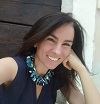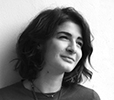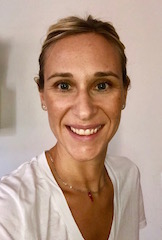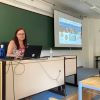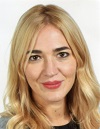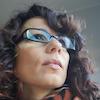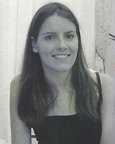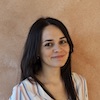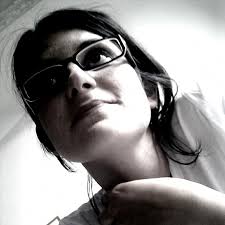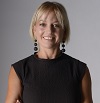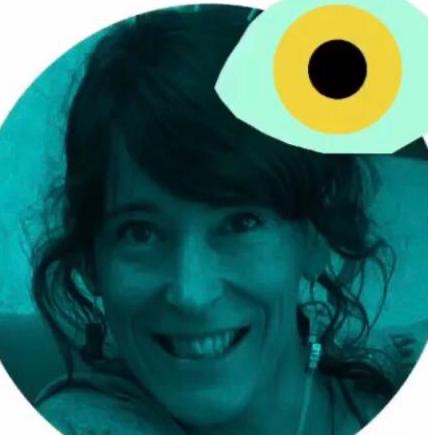Studying at the University of Verona
Here you can find information on the organisational aspects of the Programme, lecture timetables, learning activities and useful contact details for your time at the University, from enrolment to graduation.
Academic calendar
The academic calendar shows the deadlines and scheduled events that are relevant to students, teaching and technical-administrative staff of the University. Public holidays and University closures are also indicated. The academic year normally begins on 1 October each year and ends on 30 September of the following year.
Course calendar
The Academic Calendar sets out the degree programme lecture and exam timetables, as well as the relevant university closure dates..
| Period | From | To |
|---|---|---|
| Sem. 1A | Sep 27, 2021 | Nov 6, 2021 |
| Sem. 1B | Nov 15, 2021 | Jan 12, 2022 |
| Sem. 2A | Feb 14, 2022 | Mar 26, 2022 |
| Sem. 2B | Apr 4, 2022 | Jun 4, 2022 |
| Session | From | To |
|---|---|---|
| Sessione Invernale | Jan 10, 2022 | Feb 12, 2022 |
| Sessione estiva | Jun 6, 2022 | Jul 23, 2022 |
| Sessione autunnale | Aug 29, 2022 | Sep 24, 2022 |
| Session | From | To |
|---|---|---|
| Sessione estiva | Jul 11, 2022 | Jul 16, 2022 |
| Sessione autunnale | Nov 7, 2022 | Nov 12, 2022 |
| Period | From | To |
|---|---|---|
| FESTIVITA' OGNISSANTI | Nov 1, 2021 | Nov 1, 2021 |
| Vacanze di Natale | Dec 25, 2021 | Jan 6, 2022 |
| VACANZE DI PASQUA | Apr 15, 2022 | Apr 19, 2022 |
| Festa della Liberazione | Apr 25, 2022 | Apr 25, 2022 |
| FESTA DEL LAVORO | May 1, 2022 | May 1, 2022 |
| Festività Santo Patrono di Verona | May 21, 2022 | May 21, 2022 |
Exam calendar
Exam dates and rounds are managed by the relevant Humanistic Studies Teaching and Student Services Unit.
To view all the exam sessions available, please use the Exam dashboard on ESSE3.
If you forgot your login details or have problems logging in, please contact the relevant IT HelpDesk, or check the login details recovery web page.
Should you have any doubts or questions, please check the Enrollment FAQs
Academic staff
 marialivia.alga@univr.it
marialivia.alga@univr.it
 tamara.bastianello@univr.it
tamara.bastianello@univr.it
 simona.carta@univr.it
simona.carta@univr.it
 marialuisa.costantino@univr.it
marialuisa.costantino@univr.it
 donato.desilvestri@univr.it
donato.desilvestri@univr.it
 elena.desilvestri@univr.it
elena.desilvestri@univr.it
Ganzerla Luca Giovanni Michelangelo
 lucagiovanni.ganzerla@univr.it
lucagiovanni.ganzerla@univr.it
 licia.landi@univr.it
licia.landi@univr.it
 maria.mori@univr.it
maria.mori@univr.it
 ilaria.mussini@univr.it
ilaria.mussini@univr.it
 alessandro.ongaro@univr.it
alessandro.ongaro@univr.it
 valentina.persici@univr.it
valentina.persici@univr.it
 stefania.pontrandolfo@univr.it
stefania.pontrandolfo@univr.it
 rosanna.vit@univr.it
rosanna.vit@univr.it
 barbara.zoccatelli@unitn.it
barbara.zoccatelli@unitn.it
Study Plan
The Study Plan includes all modules, teaching and learning activities that each student will need to undertake during their time at the University.
Please select your Study Plan based on your enrollment year.
1° Year
| Modules | Credits | TAF | SSD |
|---|
2° Year activated in the A.Y. 2022/2023
| Modules | Credits | TAF | SSD |
|---|
3° Year activated in the A.Y. 2023/2024
| Modules | Credits | TAF | SSD |
|---|
| Modules | Credits | TAF | SSD |
|---|
| Modules | Credits | TAF | SSD |
|---|
| Modules | Credits | TAF | SSD |
|---|
| Modules | Credits | TAF | SSD |
|---|
Legend | Type of training activity (TTA)
TAF (Type of Educational Activity) All courses and activities are classified into different types of educational activities, indicated by a letter.
Education in the ages of life - Adult education (2022/2023)
Teaching code
4S008154
Teacher
Credits
6
Language
Italian
Scientific Disciplinary Sector (SSD)
M-PED/01 - PEDAGOGY, THEORIES OF EDUCATION AND SOCIAL EDUCATION
Period
Sem. 2A dal Feb 13, 2023 al Mar 30, 2023.
Erasmus students
Not available
To show the organization of the course that includes this module, follow this link: Course organization
Program
Programmatic contents
The contents of the program are divided into four parts, closely related to each other according to a conceptual approach that has as its starting point the figure of the socio-pedagogical professional educator, and as an end point the indication of some ways in which work with adults.
A) "Epistemological" part: it concerns the educator's way of approaching the reality of adults. This approach requires:
1) to have clear the "model of thought" (or paradigm) with which to know and understand adult life in its many aspects;
2) to have a "general vision of education", as a theoretical reference point for interpreting the reality of adults in a pedagogical sense and developing a coherent educational proposal;
3) to clarify in a preliminary way what is meant when we talk about "adults", that is, subjects who are living, each in their own way, a specific age of human life.
B) The "experiential" part: concerns the description of an overall vision of adult life, with particular regard to the "phases" in which it appears to be articulated, the processes that characterize them and the gradual existential awareness that arises from the different experiences that follow one another along the entire course of adulthood:
1) from "youth to adulthood": a difficult transition that manifests itself through a complex process of developing one's personality, which is marked by choices and life passages;
2) the gradual "rooting in personal and social life", which for the adult involves the experience of self-fulfillment, the assumption of roles and the recognition of one's social position;
3) the need to "get to know himself again" starting from the reflection on his own life, which leads the adult to experience a complexification of his life, which leads him to recognize that he is living two dimensions of his life at the same time: one "exterior" life and an "interior" life, in close relationship with each other and with not only formative but also transformative effects;
4) from "adulthood to old age": a further passage of life, on the part of the adult, which brings with it the awareness of living together the fulfillment of the meaning of adulthood and the beginning of old age.
C) "Problematic" part: it concerns the various critical situations which, especially in recent years and for various reasons, characterize adult life. The diversity of situations and their problems requires some descriptive and operational distinctions, internal to the problems themselves:
1) issues related to the "developmental process" of the adult person: from the effort of becoming adults, to the commitment related to the responsibilities to be assumed, to the acceptance of becoming elderly;
2) Problems related to the exercise of roles (family, professional and social) and the difficulties associated with them;
3) Problems connected in particular to unforeseen experiences or individual behaviors, which lead to situations of particular discomfort, marginality and deviance;
4) Problems related to the very idea of "adulthood" in the economic, social and cultural context of our time.
D) "Methodological" part: it concerns the way in which the educational intervention can be organized, which is able to address the above problems. The basic methodological approach consists in activating gradual "training" processes in adults that, if necessary, become aware of the need for a "transformation" process.
1) starting from the experience of the adults with whom you work (eg, autobiographical narration) and reflecting on the meaning of this experience;
2) deepen the knowledge of the specific problem, in its various aspects;
3) stimulate in the adult a process of personal involvement, aimed at formulating a decision to change;
4) accompany the adult in the initial phase in which he experiences a new way of thinking and acting.
Bibliography
Didactic methods
Organization of didactic activity
In the didactic organization of teaching, the theoretical element will prevail, typical of the traditional "frontal lesson". This element is justified by the need to present the contents related to adult life in the most conceptually correct and complete way.
The frontal lesson may in some moments also take the form of a participatory lesson, useful for encouraging interventions, asking questions, formulating reflections and giving space to brief debates on the issues addressed from time to time.
Learning assessment procedures
Given the profound cognitive continuity between knowledge of adult life and that of elderly life, the methods for verifying the learning of the contents of module 1 (Adult education) will take place within the same exam with the verification of the learning the contents of module n. 2 (Pedagogy of the life cycle). The verification will be held in writing, lasting a maximum of 3 hours. The written test will consist of a total of 5 open questions: four questions will concern the contents of the first module; a question will concern the second module. The written test will be evaluated using the score out of thirty, divided as follows:> 18 (Insufficient); 18 (just enough); 19-21 (Sufficient); 22-24 (Fair); 25-27 (Good); 28-30 (Distinguished); 30 cum laude (excellent). The final grade will result from the average of the two marks acquired respectively in the written exam, (relating to modules 1 and 2), and in the oral interview (relating to module 3).
To be truly formative, teaching must be considered as a single learning entity, even if divided into two large parts: the theoretical part (modules 1 and 2) and the practical-experiential part (module 3). To preserve, deepen and enhance the connection between theoretical and practical training, it is mandatory to take both exams (written and oral) in the same exam session.
During the lessons, further explanations and operational indications will be given regarding the execution of the written exam. During the lectures, further explanations and operational indications regarding the execution of the exam will be given.
Evaluation criteria
The assessment of the tests will be divided according to the following criteria: - from the point of view of the "contents", students must demonstrate that they are able to: a) describe and summarize the contents of a given topic; b) identify and define the fundamental concepts relating to the contents of the program; c) expose the arguments that explain certain critical aspects that characterize adult life; d) demonstrate the ability to reflect on the value of certain issues; e) knowing how to connect theoretical contents with practical experience: - from the point of view of the expository form, clarity and expository and linguistic correctness will also be evaluated.
Exam language
Italiano
Type D and Type F activities
I 12 crediti liberi a scelta dello studente (ambito “D”) hanno lo scopo di offrire allo studente la possibilità di personalizzare il proprio percorso formativo permettendo di approfondire uno o più argomenti di particolare interesse legati al proprio percorso accademico.
Per garantire questo fine, si invitano gli studenti a rispettare le seguenti indicazioni per il completamento di tale ambito:
- almeno un’attività formativa erogata come esame universitario (con relativo voto in trentesimi) - è possibile scegliere fra i vari insegnamenti del proprio CdS non sostenuti in precedenza, anche quelli dell'altro curriculum, fra i vari insegnamenti degli altri CdS di I° livello afferenti al Dipartimento di Scienze Umane ed anche fra i vari insegnamenti dei CdS di I° livello ad accesso libero erogati dall'Ateneo di Verona;
- massimo 6 cfu relativi a competenze linguistiche (oltre a quelli previsti dal PdS);
- massimo 6 cfu relativi a competenze informatiche (oltre a quelli previsti dal PdS);
- massimo 4 cfu di tirocinio, (oltre a quelli previsti dal PdS);
- massimo 6 cfu di attività laboratoriale/esercitazioni (compresi quelli previsti nei PdS per l’ambito) di regola viene riconosciuto 1 cfu ogni 25 ore di attività;
- massimo 6 cfu di attività seminariale/convegni/cicli di incontri/formative in genere (sia accreditata dal Dipartimento di Scienze Umane che extrauniversitaria) – di regola viene riconosciuto 1 cfu ogni 8 ore di partecipazione e/o 2 giornate salvo diversamente deliberato;
- non vengono valutate attività svolte in Erasmus non inserite nei Learning Agreement.
COMPETENZE TRASVERSALI
Scopri i percorsi formativi promossi dal Teaching and learning centre dell'Ateneo, destinati agli studenti iscritti ai corsi di laurea, volti alla promozione delle competenze trasversali:
https://talc.univr.it/it/competenze-trasversali
| years | Modules | TAF | Teacher |
|---|---|---|---|
| 1° 2° 3° | What paradigms beyond the pandemic? | D |
Paola Dal Toso
(Coordinator)
|
| 1° 2° 3° | The ethics and aesthetics of the image | D |
Gianluca Solla
(Coordinator)
|
| years | Modules | TAF | Teacher |
|---|---|---|---|
| 1° 2° 3° | What paradigms beyond the pandemic? | D |
Paola Dal Toso
(Coordinator)
|
| 1° 2° 3° | Laboratorio “Calendario di Memoria Civile – Giornata della Memoria” | D |
Olivia Guaraldo
(Coordinator)
|
| years | Modules | TAF | Teacher |
|---|---|---|---|
| 1° 2° 3° | Introduction to robotics for humanities students | D |
Paolo Fiorini
(Coordinator)
|
| years | Modules | TAF | Teacher |
|---|---|---|---|
| 1° 2° 3° | Restorative Justice | D |
Cristina Lonardi
(Coordinator)
|
| 1° 2° 3° | Group Psychology and the Analysis of the Ego, a hundred years later: social bond and new forms of subjectivation. | D |
Matteo Bonazzi
(Coordinator)
|
| 1° 2° 3° | Gnoseology and Metaphysics Workshop | D |
Davide Poggi
(Coordinator)
|
| years | Modules | TAF | Teacher |
|---|---|---|---|
| 1° 2° 3° | Partecipated justice and reforms. The settlement of conflicts with people and for people | D |
Cristina Lonardi
(Coordinator)
|
| 1° 2° 3° | Gnoseology and Metaphysics Workshop | D |
Davide Poggi
(Coordinator)
|
Career prospects
Module/Programme news
News for students
There you will find information, resources and services useful during your time at the University (Student’s exam record, your study plan on ESSE3, Distance Learning courses, university email account, office forms, administrative procedures, etc.). You can log into MyUnivr with your GIA login details: only in this way will you be able to receive notification of all the notices from your teachers and your secretariat via email and soon also via the Univr app.
Graduation
Documents
| Title | Info File |
|---|---|
|
|
pdf, it, 99 KB, 13/10/23 |
|
|
pdf, it, 101 KB, 10/04/24 |
List of theses and work experience proposals
| theses proposals | Research area |
|---|---|
| Ambienti e contesti di lavoro con minori | Various topics |
| Analisi dei personal network di sostegno | Various topics |
| comunicazioni relative alla tesi | Various topics |
| Il teatro come contesto educativo | Various topics |
| I processi di globalizzazione culturale nella società contemporanea | Various topics |
| La social network analysis applicata allo studio dei contesti educativi | Various topics |
| L'educatore ed i progetti europei | Various topics |
| L'impegno associativo in ambito educativo | Various topics |
| Politiche sociali e contesti educativi | Various topics |
| Progetti di collaborazione con le istituzioni scolastiche | Various topics |
| PROPOSTE TESI AMBITO GEOGRAFICO | Various topics |
| Scuola e capitale sociale | Various topics |
Linguistic training CLA
Gestione carriere
Student mentoring
Practical information for students
Documents
| Title | Info File |
|---|---|
|
|
pdf, it, 325 KB, 02/05/23 |
|
|
pdf, it, 212 KB, 02/05/23 |
|
|
pdf, it, 131 KB, 02/05/23 |
Stage e Tirocini
Le ulteriori attività formative (crediti F) sono interamente coperte dall’attività di tirocinio “indiretto” (1 cfu) da svolgersi nel secondo anno e di tirocinio “diretto” (14 cfu) da svolgersi presso enti convenzionati per un numero complessivo di 15 cfu (375 ore). Chi è iscritta/o al curriculum servizi per l’infanzia è tenuta/o a svolgere il tirocinio presso nidi e servizi per la prima infanzia per almeno il 50% delle ore.
Il tirocinio professionalizzante (375 ore, pari a 15 cfu), è obbligatorio sia nella sua forma diretta che indiretta.
Il tirocinio indiretto, della durata di 25 ore a frequenza obbligatoria al 75%, si svolge in Università per 20 ore e in forma di lavoro individuale per 5 ore e consiste in un accompagnamento iniziale delle/degli studenti da parte dei tutor attraverso un percorso formativo dotandoli di conoscenze e strumenti adeguati a osservare, comprendere e rielaborare criticamente l’esperienza di tirocinio nei servizi educativi e ad affrontare il tirocinio negli enti con metodo e consapevolezza. Il percorso, da attuare in gruppi da 20-25 persone sotto la supervisione di un tutor, risponde alle esigenze costantemente espresse sia dalle/dagli studenti stessi sia dalle parti sociali che dai referenti degli enti convenzionati.
Il tirocinio diretto si propone di raggiungere i seguenti obiettivi:
- fare esperienza diretta di attività professionali, che richiedono un livello di preparazione al lavoro educativo;
- approfondire in particolare il rapporto tra preparazione teorica, acquisita mediante lo studio, ed esperienza pratica, tra mondo del sapere e della cultura e mondo del lavoro e delle professioni;
Al termine del tirocinio diretto lo studente deve presentare una relazione scritta, nella modalità concordata con il tutor accademico.
Nuove Linee Guida per il tirocinio di Scienze dell'educazione.
- Tutte le informazioni in merito agli stage per futuri studenti sono disponibili alla pagina Stage e tirocini.
- Tutte le informazioni in merito agli stage per studenti iscritti sono pubblicate in MyUnivr - come fare per - stage e tirocini.
- Tutte le informazioni in merito agli stage per le aziende sono disponili alla pagina Stage e tirocini per azienze.
Documents
| Title | Info File |
|---|---|
|
|
pdf, it, 302 KB, 16/07/21 |
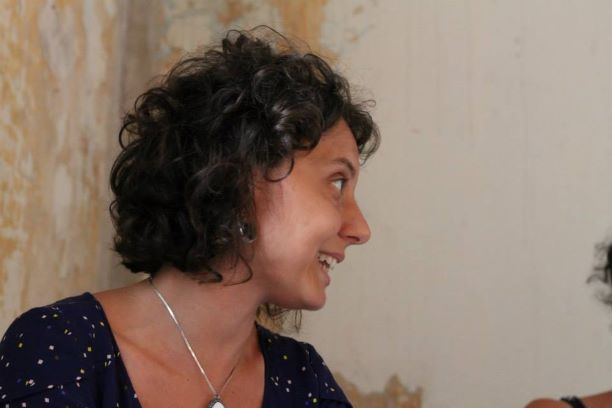
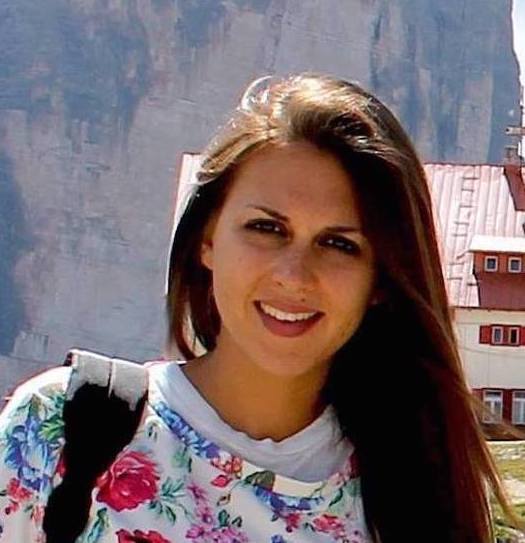
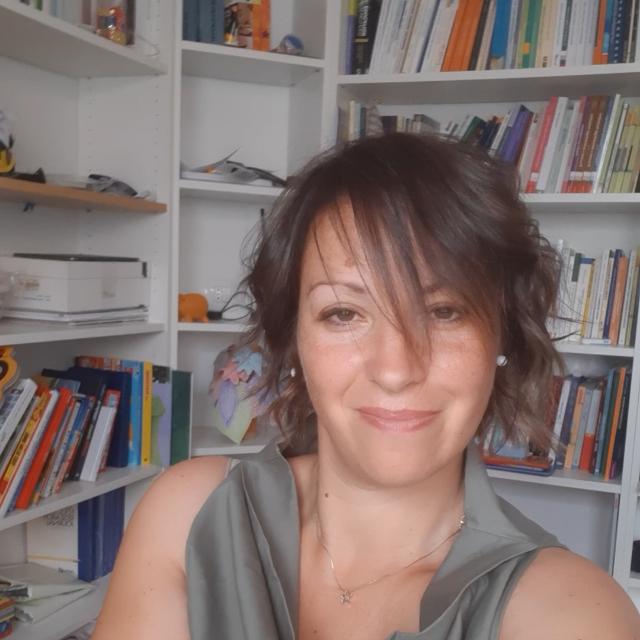
 045 8028383
045 8028383


